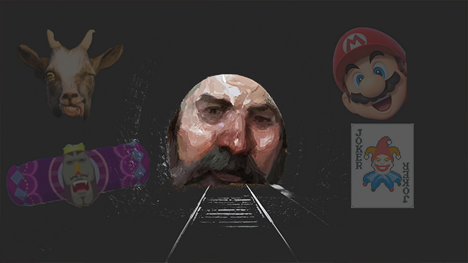Developers anonymous: The normalization and impact of miscrediting in games
We chat with developers and advocates to learn more about the practical and emotional impact of miscrediting, and discuss possible solutions.

The video game industry is failing to deal with a harmful practice that sounds absurd when you write it down, but here it is: game developers are not being properly credited for their work.
It's a problem that affects internal employees and contractors who've spent months and in some cases even years on projects. Recent reports indicate that some of the largest studios in the world have either miscredited or outright omitted developers from roll calls, leaving those affected with inexplicable gaps in their resumé and the sense that huge chunks of their professional life have been erased.
Over the past few years, we've heard stories of developers being improperly credited on major projects like Metroid Dread, The Callisto Protocol, Pentiment, Star Wars Jedi: Survivor, and God of War Ragnarok.
In some cases, studios will neglect to credit staff who depart before launch, with Metroid Dread developer MercurySteam previously confirming it won't credit anybody who leaves before production has made what it deems to be significant progress. The Callisto Protocol developer Striking Distance Studios reportedly employed a similar policy. Speaking to GI.biz in January, multiple ex-staffers across various departments claimed those who left mid-production were either relegated to a "additional help" or "miscellaneous" credit–or snubbed entirely.
In other instances, contract workers–such as external localization teams–have also struggled for recognition because of lax communication between developers and partner studios. In the case of Pentiment, for example, some individual translators weren't credited at launch because Obsidian said it didn't receive a list of names from partner companies. Josh Sawyer, game director at the Microsoft-owned studio, acknowledged the issue and pledged to remedy the situation when those names had been provided, but that didn't help those devs directly affected at launch.
At this point, there's a sense that improper crediting has become as persistent as it is pervasive. For all of the articles and social media threads spotlighting the issue, there's never been a sense that the industry at large has come close to finding a solution. Each fresh report will spark outrage and calls for meaningful reform, but then the news cycle moves on and the status quo remains unchanged.
Where, though, does that leave those developers who've been directly impacted? And, crucially, are there viable solutions that can help eradicate improper crediting practices once and for all? To find out, we spent the last few months chatting with a group of industry advocates and developers, some of whom have chosen to remain anonymous, who've experienced the shock and disappointment of being dusted from a project first-hand.
Crediting as a means of control
"I've been working in the games industry for about 15 years and have worked on a couple hundred games ranging from the smallest indie Facebook project to some of the biggest triple-A titles, and yet, I've been credited for less than 20 of those games," says translator and consultant, Lucile Danilov, who claims their main forté–localization–is "infamous" for not crediting its workers, largely due to studios relying on freelancers and contractors.
Danilov claims the culprits, in this case, are often the agencies hired by studios to handle localization. They say individual translators are regularly asked to sign NDAs prohibiting them from contacting the end clients they're working for, which in turn prevents them from reaching out to resolve any potential crediting issues. "[This] basically leaves workers at the mercy of the agency," adds Danilov. "In rare cases, the studio becomes aware of the issue and requests names after the fact, but also get denied."
It's an anecdote that mirrors the experiences of Marc Eybert-Guillon, the founder of game localization company From the Void. Eybert-Guillon established From the Void–which has worked on titles including Darkest Dungeon and Inkulinati–to prove it's possible to operate a localization firm that treats its workers fairly, and has pledged to re-empower individual translators and counter the "anonymizing practices of large agencies" by ensuring all staff are properly credited.
Like many of their peers, Eybert-Guillon began their career as an intern at a large localization agency. During that stint, they worked on several high-profile games that would have bolstered their portfolio, but in some cases weren't able to openly advertise their work due to miscrediting. They suggest the expansion of "profit-driven agencies" that have ballooned in scale by absorbing competitors and spending millions on acquisitions has led to questionable decision making that negatively impacts localization workers.
"[There's an] increasing over-reliance on machine translation and machine translation post-editing (MTPE) to drive costs down at the expense of quality, fostering a 'race to the bottom' environment that takes advantage of the large amount of freelancers trying to work in this field to constantly lower rates, while an obscuring of credits helps keep the focus on the company brand and hinder worker visibility to better control employees," they say.

Pentiment developer Obsidian failed to credit some of its translators at launch
They believe the task of crediting localization staff is also being made increasingly difficult by the "ignorance" and "laissez-faire" attitude of some developers and publishers, who aren't necessarily aware of how localization works and "what the stakes are" for those involved.
"[Studios and publishers] often get blindsided by agencies refusing to credit their workers after the fact, or even simply do not bother or think to ask for translators' names," they continue, explaining how they know people who've worked in the industry for years, but who still only have a "handful" of credits to their name. "This hurts their visibility and robs them of a status their rightfully deserve. Indeed, beyond the furthering of career and financial gain that may come from it, this is also very much simply a matter of recognition. People do hard work that millions of players enjoy on a daily basis. They deserve to have their names known."
These experiences aren't unique to those working in localization, either. One anonymous source, who previously worked as an artist at an outsourcing studio, says they spent almost two years on a major triple-A project before departing on good terms. Yet, despite maintaining a positive working relationship (while also dealing with other challenges), they weren't properly credited for their contributions and only received a "special thanks."
"I left [the company] early because I was underpaid and doing lots of overtime due to poor management, but I managed to stick around for multiple months even after securing a new job. I typically don't like to talk about these issues, because bad crediting is just the norm," they explain.
They ultimately chose to discuss their experience after becoming frustrated by the "double standards" displayed by their former employer, which neglected to properly credit staff who departed the project mid-production, even after witnessing the studio leading development take the complete opposite approach internally.
"When I brought this to the higher-ups at the outsourcing studio, trying to get proper credits for others who were affected, I was simply told that there were some mistakes and the outsourcing studio had different policies regarding credits," they add. "In the end, some people's titles were changed to 'Additional Art' and others remained 'Special Thanks.' This was a giant slap in the face as we are still miscredited."
For them, and others, improper crediting has become something of a forgone conclusion. Two more anonymous sources, who spent time at different major studios working on triple-A franchises as part of internal teams (across different disciplines), explain they also struggled to gain recognition.
One of those sources worked on a major live service franchise for over three years, but was never credited because "convincing an engineer to crack open the proprietary engine code to add names to credits was miles below priority and was (correctly) denied on every update I managed."
The other only received a 'special thanks' after working on a well-known project for almost two years (they eventually left mid-development), and claims that crediting was "never discussed" during their time at the studio. "I've been credited this way once before, but I wasn't surprised by it," they say, noting that while they were personally disappointed by the move, we've reached the stage where "everyone knows this is how the industry does it."
Miscrediting is "effectively stealing"
The practical impact of improper crediting varies on a case-by-case basis. One anonymous developer doesn't believe it has altered the trajectory of their career "too much," and said they still list every single one of their projects on their resume–credits be damned. Others said they've never had anybody question their experience or previous roles during interviews, and suggested they've reached the point in their career where poor crediting doesn't (overtly) affect their ability to get hired.
Some developers, however, feel like their worth and validity are attached to their credits. According to Katie Golden, who was chair of the IGDA Game Credits Special Interest Group (SIG) at the time of our interview but now serves as its treasurer, there's a feeling that credits give developers the role they need to support their existence and skillsets, and in some cases developers told the SIG that proper credits were essential when it came to proving their seniority.
"Some [developers we chatted with] noted having to prove and reprove themselves over and over again to be taken seriously, and even though they had been functioning as a lead or a senior already, being treated as a junior," continues Golden. "It also helps developers secure promotions as they are able to prove their contributions. Without credits, developers have to rely on their relationships and notoriety, which is unquantifiable and murky as to how one attains that in games."
At the very least, then, there's a consensus that improper crediting can stall careers and make it harder for developers to open new doors, all while fostering a sense of apathy among those affected. "Years ago, when I was just starting out in the industry, I worked on a project where everyone was told on day one that they'd only receive a 'special thanks' unless they stayed until beta," says one anonymous source, recounting their earliest foray into the game industry. "I left about nine months later due to poor contract conditions (as it only renewed every three to six months). I had contributed a significant amount to the project, doing the work of senior developers [...] yet I was not properly credited."

Metroid Dread developer MercurySteam confirmed it won't credit devs who depart before a project is 25 percent complete
Notably, one person who classifies themselves as "lucky" for not needing to rely on credits to find new clients highlights another damaging side-effect of the practice. "By 'exposing' the bad actors, you’re also putting your career at risk," says Danilov, who's worked in localization for over a decade, but states that it's a "small niche" and "nobody likes a whistleblower."
"Of course, it is highly frustrating to spend weeks, months or even years working on making sure a translation is as polished as it can be, only to find out that not only your name doesn't appear in the credits, but you are never allowed to mention it anywhere, including in your own CV/portfolio," they continue, adding that, while their business remains unaffected, the emotional fallout of improper crediting takes it toll.
Understandably, words such as "undervalued" and "angry" are used when I ask those affected to describe how the practice makes them feel. As Danilov mentions, people are being asked to work for months and years on projects only to have their sense of pride and accomplishment diminished because a company failed to credit them correctly.
One anonymous source tells me this is effectively the same as stealing somebody's work, and shows how the talent who actually dedicate themselves to making games–propping up an industry worth billions–aren't valued by those in charge. "The emotional impact is where it hits the most for me. It's hard to be excited about a release like that when you know your name or title is left out. It's effectively stealing someone else's work when you don't credit someone properly," they say. "To me, it shows a lack of appreciation from companies for the work their developers do. We work countless hours making these titles that earn companies millions of dollars and the least they can do is give us proper recognition."
Technical solutions for a widespread problem
So, where do we go from here? Those we spoke with proposed solutions including a web-based approach that would see game credits made accessible via studio websites or other official channels, presumably allowing them to be more easily updated when issues are raised.
Another approach specific to live service titles would be to make updating credits as "simple and easy as possible" by design, from day one. "If updating the credit scroll takes an artist a day to reconfigure and engineering time to render and implement, that's never going to get past scoping. But if it's as easy as updating credits.txt and someone with minimal coding experience can manage the file, it becomes a much easier to delegate task," suggests one anonymous dev.
One source believes that, rather than bundle developers who depart mid-production into a 'special thanks' catch-all, studios who want to differentiate between current and former employees should create a separate section in the credits for those who left, spotlighting their name and (former) job title. "That's more honest and representative of their work, in my opinion," they say. The idea of "collective bargaining with teeth" to prevent credit retaliation and protect talent that departs a project early was also floated.
As for those studios and publishers looking to be more proactive, there are plenty of resources available online. The IGDA Game Credit SIG recently updated its game crediting policies and toolkit to spotlight some best practices. That update saw the IGDA's Game Crediting Guide receive its first major refresh in 10 years based on feedback from fellow IGDA SIGs, including the IGDA Localization SIG and IGDA HQ. The group is also working on an open-source toolkit for Unity and Unreal developers, allowing them to create easily-updatable UI and text-based scrolling credits by tweaking a .csv that can scale to a team's needs.
"With our team and supporting voices, and we've done much of the hard work of creating a sensible, reasonable game credits policy for 2023 that is inclusive to devs of all employment statuses and takes development difficulties into consideration. Secondly, We've made recommendations on project management strategies and workflow implementations on how to gather credits, and these are in the credits policy as well," explains IGDA Game Credits SIG treasurer and former chair, Katie Golden.

The IGDA Game Credits Special Interest Group (SIG) is working to promote inclusivity and best practices for how credits are attributed
The IGDA's guidelines, however, are precisely that. Their usage relies on decision-makers acknowledging that sloppy crediting is a critical issue worth addressing, and that's hardly a foregone conclusion. "Generally, the people making decisions about internal credits policy are in senior leadership bands and 1) no longer need game credits and 2) don't realize how impactful game credits are to those who need them to validate employment status. And the decisions are quite complex," continues Golden.
"Game Crediting decisions involve defining how the studio thinks about roles versus titles, who is in them, the data collection, and then update the workflows. And that's without addressing the technical implementation, which requires bespoke engine work and engineering dev time. When there's already a devaluation of game credits, the argument to secure engineering resources to build a sustainable, updatable credits system becomes difficult without significant alignment and leadership buy-in."
The bottom line? Golden says that studios and publishers who want to get crediting right need to recognize that credits are a feature, not an afterthought. "They need a plan, intended outcomes, design documentation, investment, resources, and success criteria," she explains. For Golden, building a sustainable system and structure is the first step to success in long-term crediting, but it's also crucial to ensure that vendors and agencies that are hired for a project are willing to abide by those same standards.
A path forward is being laid for those who wish to seek it out, and there's a sense that pressure is slowly building as conversations around miscrediting continue to generate noise. It would perhaps be overzealous to suggest that change is imminent, but after years of seeing scant progress, one developer is finally allowing themselves to enjoy a moment of optimism.
"I feel extremely unjust toward the outdated practices that cost nothing to fix," they say. "I also feel a sliver of hope that we can now have this conversation in a more constructive way and make the industry better than when I started."
Game Developer reached out to Nintendo, Sony, and Microsoft for more information on how each company handles crediting among its internal studios and never heard back. Activision Blizzard also declined to comment.
Read more about:
FeaturesAbout the Author(s)
You May Also Like


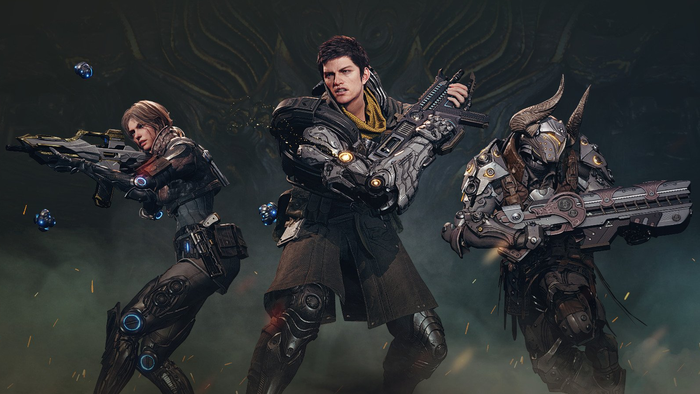
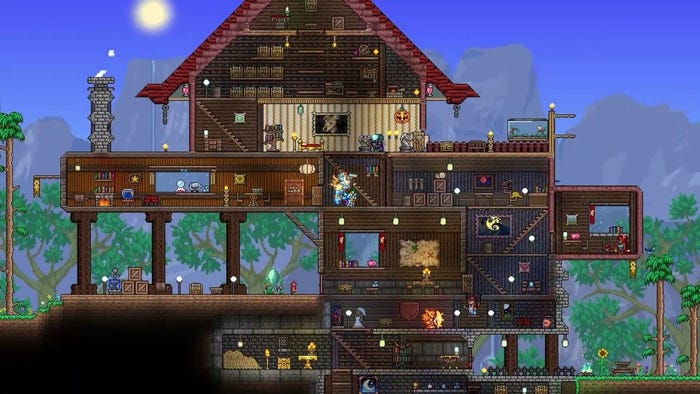
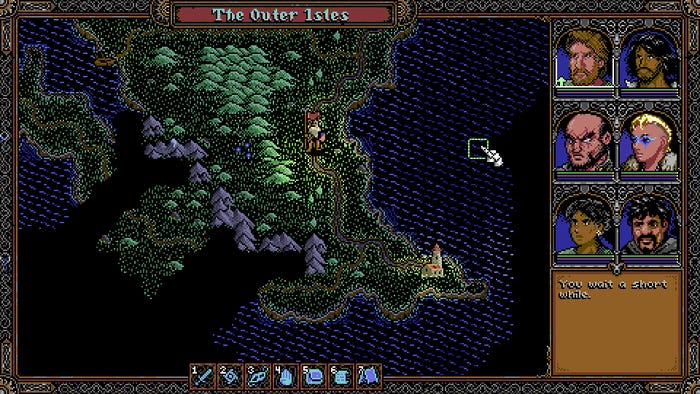


.jpeg?width=700&auto=webp&quality=80&disable=upscale)


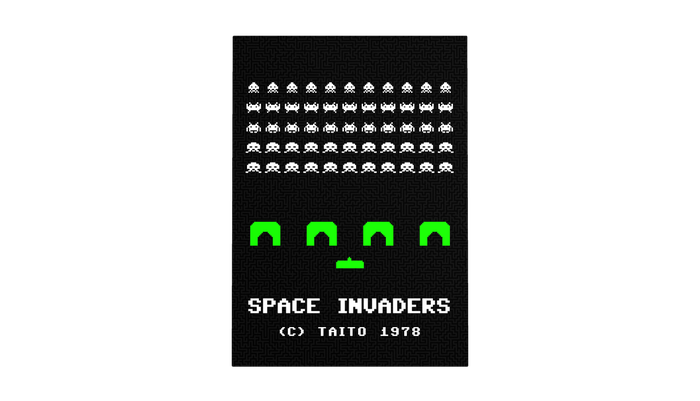
.jpg?width=700&auto=webp&quality=80&disable=upscale)
